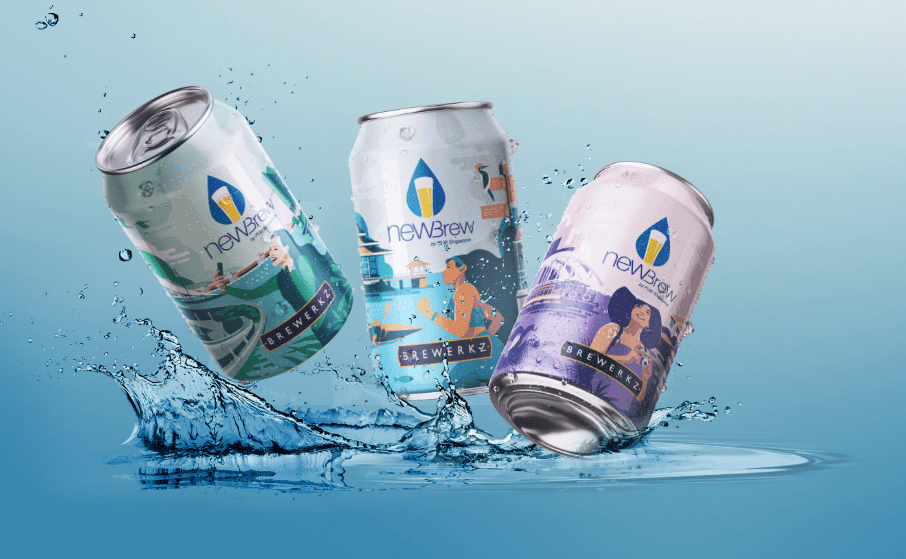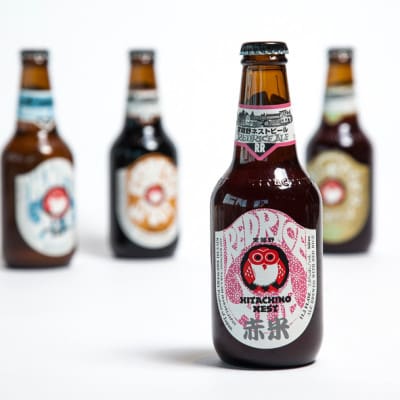Travel
10 Eco-Friendly Beer Companies Brewing a Better World


Sustainable Solutions for Thirsty Travelers
For many of us beer becomes one of our five-a-day while travelling. Whether you’re a lager lover, pale ale aficionado, or low-alcohol brews keep you hoppy, it’s never been easier to find an eco-friendly alternative to the local tipple. There’s no feeling quite like ending a day of exploring with a refreshing pint or cracking open a cold one with newfound friends. But it doesn’t have to come at a cost to the climate. Just like the hostels reducing their environmental impact, these beer companies are brewing a better world.
Turning Sewage Water into Pints: Brewerkz in Singapore
Singapore is teaming with innovation, but behind the scenes has limited natural water sources, meaning it’s heavily dependent on rainfall collection and imported water from Malaysia. Craft brewery Brewerkz has created a not-so-thirst-quenching yet sustainable solution; NEWBrew, a blonde ale made from recycled sewage water.
Combatting Rice Waste and Beer Waste: Kiuchi Brewery in Japan
Kiuchi Brewery produces ale with local rice as its main ingredient. But their sustainable initiatives don’t stop there, they’re also combatting beer waste by collecting old kegs and distilling it into gin, sending it back to the venues to reuse.
Chang: Green in Brand and Nature in Thailand
Chang is a lager made with local rice that provides a refreshing break from the ever-spicy dishes. On top of that, their brewery is powered by solar, they recycle wastewater, and have switched up their bottles and labels to make them more eco-friendly.
Saigon Green: A Sustainable Lager in Vietnam
Saigon Green is a lager made by brewery SABECO, which puts social responsibility and the environment at the forefront. They recycle all by-products from the brewing process and use renewable biomass boilers to generate heat that makes their beer.
Cerveza Patagonia: Putting the Environment First in Argentina
Cerveza Patagonia has created a circular economy with bottles and packaging returned and reused again. Their beer production runs on 100% renewable energy, using wind farms to power everything they do.
Nuestra Siembra: Supporting Small Farmers in Ecuador
Cerveceria Nacional launched a new beer brand, Nuestra Siembra, to create positive social impact and support sustainability. This bottle of blonde is made from 100% natural ingredients sourced only from small Ecuadorian farms, transforming their lives and generating more than 60,000 jobs.


Magnifica, Nossa, and Legitima: Brazilian Beers Made with Locally Sourced Cassava
The Brazilian government has joined forces with AmBev to craft their own eco-friendly ales. Magnifica, Nossa, and Legitima are made from locally sourced cassava from smallholder farmers in rural areas of the country.
Estrella: The Mediterranean Beer Caring for the Climate
Estrella uses 100% natural and locally sourced ingredients. They repurpose all by-products from the brewing process as feed for farm animals and have removed all plastic from their packaging, switching to biodegradable cardboard from sustainable forests.
Weihenstephan: Leading the Way in Sustainable Pilsner Brewing in Germany
Weihenstephan has been leading the way in sustainable Pilsner brewing for over 30 years. The beer and the brand are Bavarian-born and bred, using only local materials, and promoting and donating to community climate and social impact projects.
Toast: Making Beer from Surplus Bread in the UK
Toast uses surplus bread instead of barley to make their beer. They campaign to reduce food waste and restore soils, removing carbon from the environment and combatting food poverty. All of their profits go to charities fighting the cause.
These are just a few of the eco-friendly beer companies making a difference in the world. Whether you're exploring hidden hiking trails in New Zealand or lying horizontal on the beach in Spain, we’re sure hangovers don’t feel as bad when you know you’re protecting the planet.


Hello! I’m Roger Jenkins, your go-to source at ReportingTheNews.com. I’m a USC graduate who combines journalistic precision with a Trojan’s passion. Based in sunny Los Angeles, my days are filled with more than just sunshine; they’re about capturing stories that resonate.
Beyond the newsroom, I’m an avid triathlete. Swimming, cycling, and running are more than just sports to me; they embody my commitment to discipline, focus, and a healthy dose of competition.
My love for travel takes me far and wide. Guadalajara, with its vibrant culture and unforgettable tacos, has a special place in my heart. I’m always searching for the next great story or a hidden culinary treasure.
At home, Nala, my energetic pet, is my constant companion. Together, we’re known in our neighborhood for our morning runs and evening strolls.
I’m driven by a belief in the power of storytelling to unite communities. Join me as we explore impactful narratives and stay updated with the latest news. You’ll also get a peek into my sports passions and travel escapades.
Want to get in touch? Follow me on Instagram for more insights and updates.

